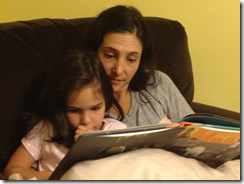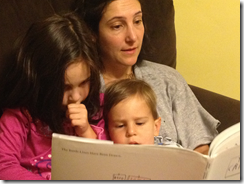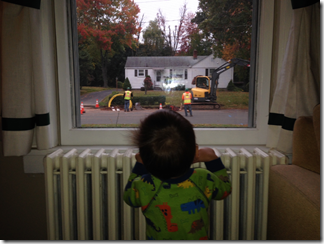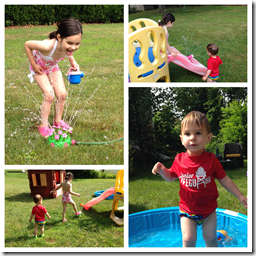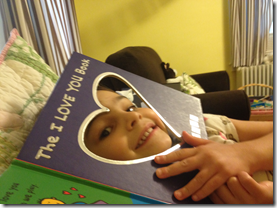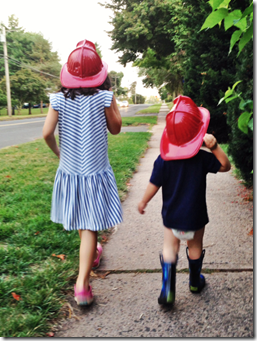30 lessons learned from six years of parenting
/My daughter celebrated her sixth birthday on Sunday. When she turned two years-old, I posted a list of lessons learned from two years of parenting.
I updated that list when she turned four.
In truth, I raised a step-daughter for ten years as well, so I’ve been a parent a lot longer than just six years, but for the purposes of these posts, I have only listed lessons learned since having children of my own.
Here is the latest update to the list.
_________________________
1. The parent who assumes the tougher position in regards to expectations and discipline is almost always correct.
2. Writing to your child on a daily basis helps you better appreciate the moments with your little one and prevents you from wondering how and why times flies by so quickly.
3. Training your child to fall sleep on her own and sleep through the night takes about two-four weeks if done with tenacity, an iron will, and an absolute adherence to the advice of experts. There are exceptions to this, of course, but they are few and far between. Parents must also possess the grudging acceptance that thunderstorms, nightmares, and illness will upset the apple cart from time to time.
4. You cannot take too many photographs of your children.
5. Failure to follow through with warnings and consequences even once is the death knell of effective parenting. Everything begins with you sticking to your word every time. Nothing is more important when it comes to discipline.
6. Libraries are the greatest child-friendly, zero-cost entertainment options on the planet.
7. The right iPhone app can transform an unfortunate dining experience into a delightful one. There is no reason to suffer in a restaurant. If your child is acting like a jerk, fork over the technology and enjoy the rest of the meal. Make him or her suffer later.
8. Almost all of your child’s annoying behaviors have a short shelf life. They will invariably be replaced by a different annoying behavior, but don’t become consumed with the idea that any one behavior will last forever.
9. Reading to your child every night is one of the best things you can do. Failure to do so is inexcusable.
10. Car seats suck. They may be the worst part of parenting.
11. Parents who are blessed with children who eat almost anything and claim that they are responsible for this behavior should be immediately ostracized by friends and family. Possibly forever.
12. Babysitters who take good care of your children and keep the house clean should be treasured like gold.
13. It’s important to remember that there was a time in human history, not that long ago, when foods like bananas, avocados, and fish were unavailable to vast areas of the world on a daily basis, yet children still grew up healthy and strong. Variety is lovely but not as important as we sometimes think. Don’t sweat it.
14. Pick up your children as often as possible, particularly when they become too heavy to do so comfortably. The day will come when you can no longer pick them up, and you will regret all the times they asked and you said no.
15. Battles over a child’s choice of clothing are some of the dumbest. As long as your child is adhering to basic codes of decency, stay out of the wardrobe wars.
16. Changing a diaper is not a big deal and is never something worthy of whines or complaints.
17. Experienced parents always know which toys are best.
18. If your child refuses to wear a hat, coat, or gloves, allow them to experience the cold. Natural consequences oftentimes teach the most valuable lessons.
19. Unsolicited advice from experienced parents should always be received with appreciation. It should not be viewed as a criticism or indictment of your own parenting skills and can be easily ignored if need be.
20. Consignment shops are some of the best places to find children’s clothing and toys unless you are a pretentious snob.
21. The majority of unhappy parents in the world possessed unrealistic or misguided expectations about motherhood or fatherhood before their child was ever born.
22. Don’t become emotionally involved in your child’s poor behavioral choices. He or she owns those choices. Establish expectations, deliver consequences, and offer guidance and love. That is all. You almost never have anything to do with a temper tantrum or your child’s bad decision.
23. Parents seeking the most fashionable or trendy stroller, diaper bag, and similar accouterments are often saddled with the least practical option.
24. Little boys and little girls are entirely different animals. They have almost nothing in common, and it is a miracle that they might one day marry each other.
25. Parenting is not nearly as difficult as people want you to believe.
26. Telling parents that taking care of your child has been an easy and joyous experience will usually annoy them.
27. A seemingly great majority of the people in the world who are raising children are not happy unless they have attempted to demoralize you with their assurances that parenting will not be easy.
28. Experienced parents who are positive, optimistic, and encouraging to the parents of newborns are difficult to come by and should be treasured when found.
29. The ratio of happy times to difficult times in the first two years of your child’s life is about a billion to one.
30. Parents have a tragic tendency to forget the billion and accentuate the one.


